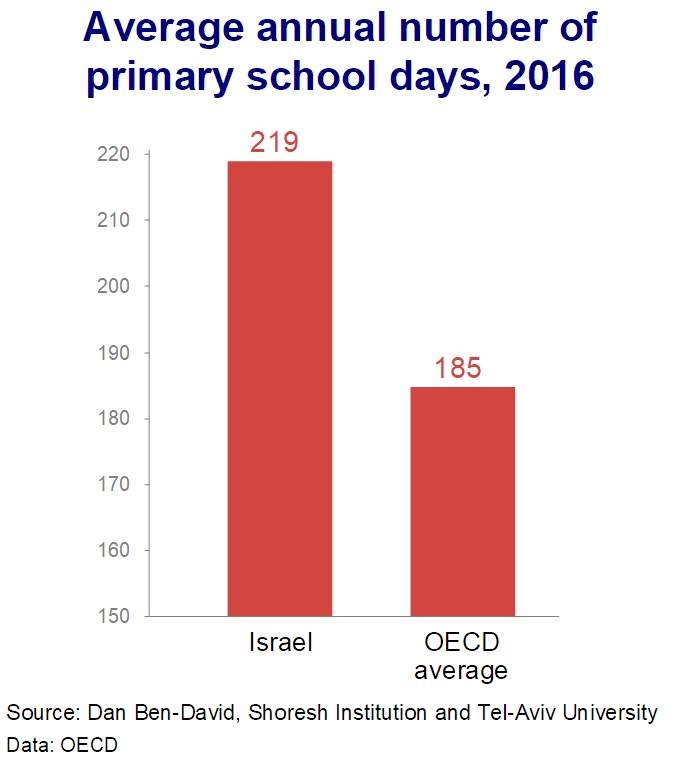School vacations, Shabbat and thinking within the box by Dan Ben-David Israelis
are not particularly good at distinguishing between the ability to improvise
and find unique solutions as a result of out-of-the-box thinking, and the
ability to devise machinations to bury oneself as deeply as possible within the
box. The current ruckus revolves around
a desire to reduce the number of school vacation days in order to lessen the
burden on working parents. It embodies
the national culture of reliance on partial information and turning simple
challenges into excruciating ones. The
Education Ministry has suggested a number of options, causing the teachers’
unions to man the barricades. Neither
side is taking into account one simple fact – which they may not have even
bothered to check before launching into the dispute about solutions: already
today, the Israeli children spend more days in school than the children of
every other developed country. The
219 primary school days per year in Israel is 18 more than the number of school
days in second-place Japan, and 34 more than the OECD average number of school
days. Israeli pupils spend more time in
school than do pupils in every other developed country because they study six
days a week – and this is the original sin. You want to shorten vacations? Then move the education system to a five day
week and gain a “bank” of 20 to 30 school days a year to use for shortening
vacations without batting an eye. After
all, teachers work just five days a week – like most parents. Such a policy change will make it possible to
finally move the country to a formal five-day work and school week with a
Friday-Saturday weekend. Simple and
elegant. For me personally, this is
sufficient. 
But
it turns out this isn’t everyone’s dream weekend. Hence, a second problem appears that we excel
in thinking about within the box: Most Israelis want Sunday to be a part of
their weekend – like abroad – for shopping, leisure and all the other things
that are not available on Saturday daytime or much of Friday. Thus, because of Shabbat (and a good doze of
mental freeze), we want Sunday in addition to – rather than instead of – Friday
in our weekends. But with Israeli living
standards already below much of the developed world, working four days a week
and producing less would invariably lead to even lower incomes. This need not be the only solution. In
this debate, it is easy to forget that religious Jews live in London, Paris and
New York, and that Shabbat is important to them as well. Their workdays are Monday through
Friday. There is no problem with Shabbat
in the summer, because the days are long and Shabbat begins long after the
workday ends. And in winter? Living closer to the equator has its
benefits. On December 21, the shortest
day of the year, there are two additional hours of sunlight in Israel than in
London and Paris, and three more than in New York. The only thing we need to do in Israel is to
move to daylight saving time in the winter and the sun will set at 5:39 P.M. on
the shortest day of the year – and later on every other day (if necessary, we
can even move to DST +1 hour). If
religious Jews can deal with this abroad, they can certainly do so when there
are more hours of sunlight at their disposal in Israel. The
bottom line is that there is no problem adjusting school days to parents’
workdays without quarreling with the teachers and there should be no obstacles
that preclude a full day of open stores for those who do not want it to be on
Shabbat. We just need to open our eyes
and not just see, but actively look at what is in front of our noses. |